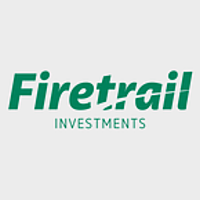Amcor: An inexpensive defensive with growth optionality
We kick off the Firetrail Analyst Series with a wire focussing on why we like packaging giant Amcor (ASX:AMC) in the current environment.
The packaging giant is often perceived as a company with limited growth options operating in the contentious market of plastics packaging for fast-moving consumer goods (FMCG) franchises.
But there's more to Amcor than meets the eye. As our Industrial Analyst Ramoun Lazar points out, the company has played an essential role from a hygiene aspect during COVID-19 pandemic. Beyond this, the stock offers a rock-solid dividend yield, strong free cash generation and growth optionality on top. The company is also addressing concerns about sustainability. All-in-all, we consider it an "inexpensive defensive".
Watch the interview with Ramoun or read the Q&A below. Don't forget that this is first of six exclusive reports for Livewire readers. Hit FOLLOW on the left of the page below for the next update.
Watch the video
Read the Q&A
The brief today was to cover an inexpensive defensive to invest in through this current market environment. What have you got for us today?
Amcor, we think, is an inexpensive defensive. If you think about Amcor, it's one of the world's largest packaging companies. It produces plastic packaging in the consumer space for medical companies, for pharma companies. It's got a great range of companies.
Its key customers are companies like Nestle, Unilever, Pepsi. And then if you dig deeper and look at some of the products that it manufactures, you're thinking about products like stand up yoghurt pouches and protective barrier films for meat and fresh produce.
And then if you look at all the end markets put together we think 80-85% of Amcor's end markets are highly defensive and growing with consumer trends. And if you look at Amcor's geographic diversification, about 70% of its revenues come from Europe, the U.S. and other developed markets such as Australia, and then 30% comes from emerging markets where we think longer term will provide higher growth rates.
Can you run us through a bit about the competitive environment where Amcor sits?
If you think about Amcor's end markets; Western Europe and the U.S. are the largest. In both those markets, it's now the number one player. So it's been the number one player in Western Europe for a long time. Eastern Europe alongside that. And then in the U.S. a couple of years ago bought the largest player: Bemis.
So that made it a global offering to large global FMCG (fast-moving consumer goods) companies. Again, companies like Nestle, Unilever, Pepsi and Kraft. All these companies, Amcor has as its key customers. If you think about the model, if you think about the Amcor model, it's a pretty simple model. So the demand for its products grow by population growth, maybe a bit more or a bit less at times. Volumes tend to grow 1%, maybe 2%. Delivering that volume, Amcor will produce bottom-line growth, so EPS growth of something in the order of 3%.
You mentioned that Amcor has strong cashflow. Can you break down its capital management strategy?
Now, the key attractiveness of that is that it's a highly cashflow generative business. So, 3% bottom-line growth would deliver the business about $1.5 billion of cashflow. Of that, it needs to reinvest about $500 million to continue to deliver 1 to 2% volume growth. That leaves us with $1 billion dollars of free cashflow. So what does it do with that? It gives back to shareholders in the form of dividends. So about $700 million of annual cashflows go back to shareholders as dividends.
And if you look at the business, it has a very attractive yield. It's currently yielding about 5%, which is very good in this sort of market environment. It's also one of the companies that haven't deferred dividends or cancelled dividends given what's going on with coronavirus, et cetera. Then after those dividends, you've still got $300-$400 million of free cashflow left.
So what does it do with that $300-$400 million? It can take that and return it to shareholders in the form of buybacks or other capital management initiatives or undertake further M&A. So historically, the business has grown.

Because it is in a mature industry, the way that Amcor has grown is through M&A. The end markets continue to be fragmented. Plastic packaging or flexibles packaging, which is what Amcor dominates, is a highly fragmented industry. So there continues to be acquisition opportunities. At the moment, we think they're probably sidelined because the business is in the middle of integrating and delivering on Bemis.
You were talking about the Bemis acquisition and really how that's going to drive future growth and drive synergies for Amcor. Can you run us through that part of the investment thesis?
Amcor acquired Bemis in 2018. It was quite a large acquisition. Amcor's flexible business prior to Bemis had roughly $5 billion of revenues. Bemis had about $4 billion of revenue, so pretty similar in terms of size. What it gave Amcor though was a number one position in the North American market. So particularly in the U.S. market where Bemis was a clear leader in flexible packaging. Now, put putting all that together, Amcor now has a global footprint in flexible packaging, whereas previously it didn't have that North American exposure.

So it's now the number one player in Europe, North America, Latin America, and the Asia Pacific. What that enables the business to do is take that offering to your global brands such as Nestle, or other major FMCG companies: Unilever, Kraft and Pepsi, etc. and offer them a one-stop-shop effectively for their packaging products on a regional basis.
The second major driver of the acquisition is synergies. Amcor has stated that it expects to deliver about 180 million of synergies through the Bemis acquisition. All those synergies are cost-based synergies so there are no revenue-based synergies assumed within that $180 million.
We think over time as the business is integrated into the Amcor fold, there will be opportunities to drive revenue synergies. If you're doing a piece of work for Pepsi in Europe, you're not doing it in the U.S., there's that potential to go to them in the U.S. and say, "Well, we're providing you with this service in Europe. We can do that in the U.S." And Pepsi knows Amcor well from other regions and is more likely to get an audience to try and win that business. So we think that's a longer-term potential that Bemis provides.
When we think about the packaging industry and in particular plastics and single-use plastics, it can be a bit controversial in terms of the sustainability of single-use plastics. How are they addressing these sustainability issues?
I look at sustainability with regard to Amcor in three ways.
- The first way is single-use plastics and they are definitely on the way out, or they're going to be significantly reduced over time. Now, when we talk about single-use plastics, we're talking about things like plastic shopping bags, garbage bags, disposable cutlery, for example. These are highly commoditised low-value products. Amcor doesn't do any of those.
- The second thing is are plastics going to continue to be used over time? And we definitely think that plastics have a place in society and in how consumers behave or interact with products. So for example, if you look at companies like Coke and Pepsi, both have committed to the ongoing use of rigid plastic containers, or PET containers. Why is that? Because they're 100% recyclable, they have a much lower greenhouse gas footprint than the alternatives, which are really glass and aluminium cans. So we think those type of plastics, alongside high barrier films for meat and fresh produce definitely have a place in society.
- And then the third approach is how can Amcor help its customers deliver on those sustainability goals? You can see some of Amcor's key customers, what their promises are or objectives are around sustainability and reuse/recyclability through 2025. And some of these are pretty ambitious goals. And companies like Unilever, Nestle, Pepsi, Coke, have all gone out with significant targets. Now, we think it's going to take a company like Amcor, a global leader in developing some of these products, in enabling some of those large global FMCG brands to deliver on some of these goals.

How do you think about valuing a defensive company like Amcor?
So as an Australian investor, obviously we comp Amcor against other defensive Australian businesses. So putting aside its highly attractive cashflow metrics, which enable a pretty attractive dividend yield, for example, that 5% dividend yield as I mentioned previously if I compare it to companies that are in the same sort of space. I'm thinking about companies like Woolworths, Wesfarmers, Coles, Brambles and Coke.
Now, if I think about Woolworths and Wesfarmers, those companies are trading on 25 times one year forward P/Es. Coles, Brambles are trading on 20-21 times one year forward P/Es. If I think about Amcor, it's trading on 14 times. So it's trading at a significant discount to those businesses and is also still generating a 5% dividend yield. And I think that, in the context of risk reward, looks pretty attractive.
FOLLOW us to get first access to these reports
We hope you enjoyed this wire on Amcor. If you'd like to receive our other five exclusive reports first, click on Firetrail Investments and hit FOLLOW.
4 topics
1 stock mentioned
2 contributors mentioned


